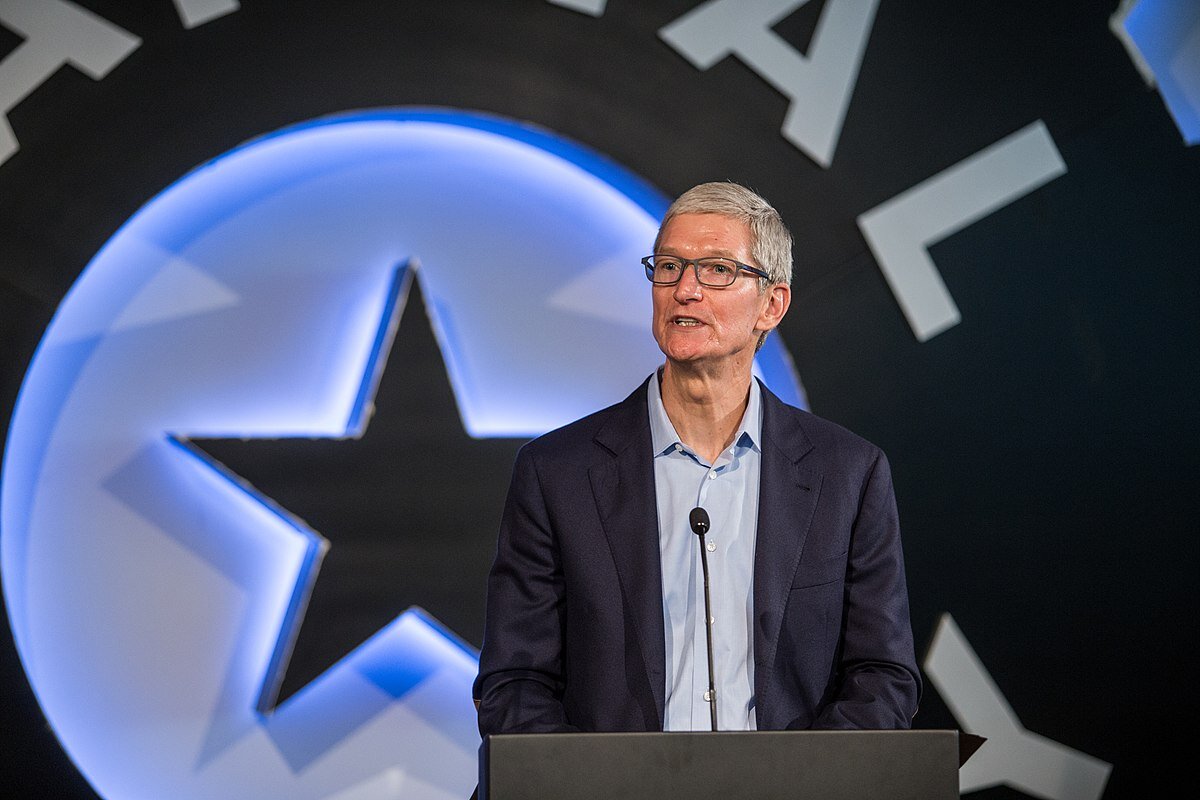This 1-Word Email From Apple CEO Tim Cook Teaches a Major Lesson in Leadership
With the death of Apple cofounder and visionary Steve Jobs back in 2011, many feared the company would begin a slow demise of its own.
But fast forward to today, and the company is thriving. In fact, under the leadership of CEO Tim Cook, Apple has become the most valuable company in the world, with a market valuation approaching almost two trillion dollars.
That's trillion. As in, a two followed by twelve zeroes.
So, how did he do it? How did Cook, an industrial engineer who previously served as a supply chain manager for Compaq, manage to pick up where Jobs left off--and continue Apple's ascent to the top?
Of course, there are many factors at work. But I recently came across a (previously confidential) email from Cook to his top lieutenants. It illustrates a key feature of Cook's leadership style, and helps explain why Cook and Apple have excelled.
A 1-Word Email
First, some context. The email was recently made public by Congress in connection with the House Judiciary subcommittee on antitrust's recent meeting with the CEOs of four Big Tech companies, namely Apple, Amazon, Facebook, and Alphabet.
The email in question is from an unnamed, self-described "Apple evangelist," a developer who specialized in creating apps to highlight and review other apps. The unnamed developer expressed frustration regarding the company's app review process. (Apple has been criticized by developers over the years for a review process that is less than transparent, and that many see as unfair to smaller developers.)
The developer's email itself is a great example of emotional intelligence, as it expresses respect towards Apple and appreciation for its ecosystem, while clearly articulating valid concerns. The fact that the ultimately critical email was so well-written helps explain why it caught Cook's attention in the first place. (You can read the full email here.)
So, how would Cook respond to the lengthy message?
He forwarded the email to three of Apple's highest decision makers, senior vice presidents Eddie Cue, Phil Schiller, and Craig Federighi, with a one-word question:
"Thoughts?"
On the surface, you may think there's nothing special about that type of email. After all, it's a single word.
But let's break it down.
First, Cook, the CEO of one of the most valuable companies in the world, could have dismissed the original message as a small-time complaint coming from a programmer who didn't understand Apple's overarching goals and strategy.
But he didn't.
Or, in contrast, Cook could have been shocked by the email and made an immediate change based on an emotional reaction, forcing others to deal with any resulting mess.
He didn't do that, either.
Cook also could have taken the Jeff Bezos route, and forwarded the complaint for handling--along with a single question mark. But that type of email can easily be seen as curt or intimidating. As my colleague Bill Murphy likes to say, it's the email that "scares the heck out of everyone."
But Cook's email doesn't carry that connotation. Instead, it reads like an honest concern, and a genuine invitation to his most trusted advisers to share their opinions on a complex matter.
That's emotionally intelligent leadership at its finest: leveraging well-established relationships, the strength of others, and simple communication--to figure out answers to difficult questions.
This approach reflects how fellow employees and others in the industry view Cook. In a recent profile, The Wall Street Journal described the 59-year old CEO's leadership style as "cautious, collaborative, and tactical."
That's a big difference from the way Cook's predecessor used to run things. Jobs was well known for his efforts to "bend reality" and manipulate others to his own thinking. And although he led an amazing turnaround at Apple, Jobs would be forced to admit that collaborative communication was not one of his strengths.
But Jobs knew that Cook was exactly what Apple needed. That's why, before Jobs died, he reportedly advised his soon-to-be successor:
"Don't ask what I would do. Do what's right."
Cook took the advice to heart.
"I knew what I needed to do was not to mimic him," Cook reportedly told ESPN a few years ago. "I would fail miserably at that, and I think this is largely the case for many people who take a baton from someone larger than life."
"You have to chart your own course. You have to be the best version of yourself."
Enjoy this post? Check out my book, EQ Applied, which uses fascinating research and compelling stories to illustrate what emotional intelligence looks like in everyday life.
A version of this article originally appeared on Inc.com.
